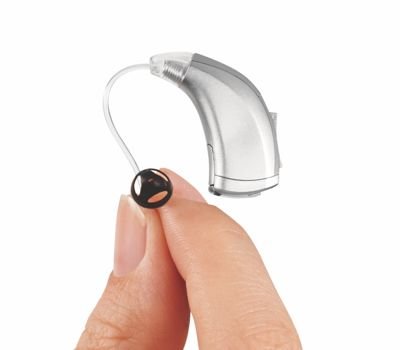Blog, News & Offers
Digital hearing aids and free hearing checks.
Posted on Tuesday, August 2, 2022


As one of our primary senses, being able to hear helps us to communicate and engage with the people around us. As we age, our ability to hear begins to change and unfortunately deteriorate but it can take time for people to become aware of the impact that poor hearing can have on everyday life. Whether it’s constantly asking loved ones to repeat themselves or turning up the T.V, there are some tell-tale signs that you may be suffering with hearing loss. It’s important to not stress yourself out too much if you think your hearing is deteriorating as it is now easy to determine if you have hearing loss and plenty of options to improve the quality of your hearing.
Our ability to hear can change for a number of reasons. It may be as simple as excessive ear wax or an infection, both of which can be easily treated. A long-term change in hearing may be due to a number of factors:
Age-related hearing loss
This is the most common form of hearing loss and affects as many as 50% of people over the age of 60.
Noise exposure
Prolonged and repeated exposure to noise can damage hearing. This may be caused by working in a noisy environment or taking part in certain activities such as DIY, attending concerts and listening to personal music players.
Within the inner ear is an organ called the cochlea. Situated inside the cochlea are a number of tiny hair cells that receive the sound signals entering the ear and transfer them on to the brain. Each of these sets of hair cells are ‘tuned’ to a particular frequency and over time some of these literally wear out, which is why certain sounds become muffled and difficult to hear.
Coming to terms with hearing loss can be difficult but with the correct help and advice from our team better hearing is a reality for most people in later life. If you think your ability to hear well has deteriorated over the past few years then a free hearing check is the best way to find out!
Unfortunately we are unable to offer NHS hearing aids but we can provide state of the art digital hearing aids and a free hearing assessment to demonstrate how they may benefit you as well as all your aftercare needs.
Our comprehensive hearing assessment is carried out by one of our qualified Hearing Aid Audiologists (HAA), it takes approximately 45 minutes and is made up to of the following steps:
Step One: Initial discussion
Our Hearing Aid Audiologist will ask you about your medical history, as well as your lifestyle and occupation. You will be asked about any hearing difficulties you may be experiencing, if you have worn hearing aids before and in what specific situations you would like to hear better.
Step Two: Checking the health of the ears (Otoscopy)
An instrument called an Otoscope is used to look inside your ears, checking for any blockages or abnormalities of the ear drum and the ear canal. Should any conditions be discovered that are best addressed by your GP, our Hearing Aid Audiologist will refer you for further investigation.
Step Three: Checking the level of hearing (Audiometry)
A computerised audiometer is used to establish how well you can hear. By playing different tones at a set range of frequencies and volumes, our Hearing Aid Audiologist is able to determine your level of hearing. Should the results require it, your HAA will also fit a hearing aid at this point, to demonstrate the improvements to your hearing that are possible.
Step Four: Explanation of results
It is extremely important that you fully understand the results of your Full Hearing Health Check. Therefore, we ensure that we take the necessary time to explain the results at the end of the appointment. If your Full Hearing Health Check determines that a hearing loss is present, our Hearing Aid Audiologist will advise you of the most appropriate solutions for you.
If you or a loved one are ready to talk about how a digital hearing aid may help you, please contact your local practice to arrange an assessment or to find out more.
Blog Search
Blog Categories
- News & Offers (50)
Blog Archives
- August2023 (1)
- April2023 (1)
- November2022 (1)
- October2022 (2)
- September2022 (1)
- August2022 (3)
- June2022 (3)
- May2022 (3)
- March2022 (3)
- December2021 (2)
- November2021 (1)
- June2021 (1)
- May2021 (1)
- April2021 (2)
- March2021 (2)
- February2021 (4)
- January2021 (1)
- December2020 (1)
- November2020 (2)
- October2020 (1)
- September2020 (3)
- July2020 (1)
- April2020 (2)
- March2020 (2)
- October2019 (1)
- July2019 (2)
- June2019 (1)
- February2019 (1)
- January2019 (1)